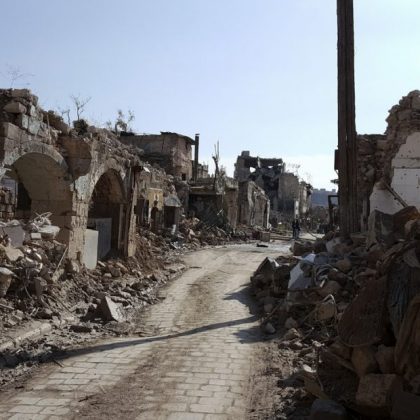Meet the Editorial Board for Modern American History: Q&A with Christopher Capozzola
In this installment of our blog series introducing the board members for the new Cambridge University Press journal, Modern American History, Christopher Capozzola gives us his take on United States history.
Christopher Capozzola is an associate professor of history at the Massachusetts Institute of Technology, where he teaches classes on political and legal history, war and the military, and the history of international migration. He is the author of Uncle Sam Wants You: World War I and the Making of the Modern American Citizen and is currently completing Brothers of the Pacific: a History of Filipinos in the U.S. Armed Forces since the 1890s.
 Why do you study modern American history and not something else?
Why do you study modern American history and not something else?
Actually, on any given day, I’m usually studying or teaching modern American history and something else. Figuring out what is modern about modern America requires, for instance, understanding the nineteenth-century state formations and cultural practices that preceded it. Nor, as all now know, can the United States be studied in isolation. And historical scholarship is always better practiced when it draws from and speaks to other disciplines. Modern American history (the subject) is too important to be left to historians. My hope is that Modern American History (the journal) will be an important meeting point for thinking about these matters.
What are some of the challenges facing the field today? In what new directions might the field go?
Despite some recent claims to the contrary, political history continues to dominate our understandings of modern American history. As someone interested in legal, diplomatic, and military history, I’m obviously committed to the study of political institutions and political culture. But given that political history was never fully displaced from modern U.S. history, there is a serious risk that political history may distort our understandings of the twentieth century. The new political history is best when it draws on social and cultural histories that—for most of the twentieth century and certainly for the period from the mid-1960s forward—still remain to be written. It is time, I think, to consider longer-term shifts in society, culture, technology, and economy that are just now coming into view.
This will require new thinking about periodization that tackles trends that don’t really have a meaningful periodization within modern U.S. history: decolonization, globalization, and the anthropocene, just to name three.
Our first task is to revolt against the tyrannical oppression of the decade, easily the least helpful concept in the toolkit of modern American historians, and one we’re all guilty of using. If Modern American History can be the place where U.S. historians think our way out of the decade as a unit of analysis, then it will be worth the price I paid for my subscription.
If you could have been present in any “room where it happened,” what would you have witnessed?
I would have wanted to be at the meeting where someone decided to bankroll a multimillion-dollar musical about a personally unlikeable cabinet secretary greatly enamored of capitalism and generally hostile to democracy. Because I have a really good idea for a musical about Elihu Root.
Modern American History’s first print issue will appear in 2018. Sign up for online content alerts and follow us on Twitter @ModAmHist. Article submissions and 250-word proposals for special features can be sent to mailto:mahist@bu.edu.
Main image illustrates Capozzola’s argument that modern Americanists think too much in terms of decades. Editorial credit: Brian S / Shutterstock, Inc.






